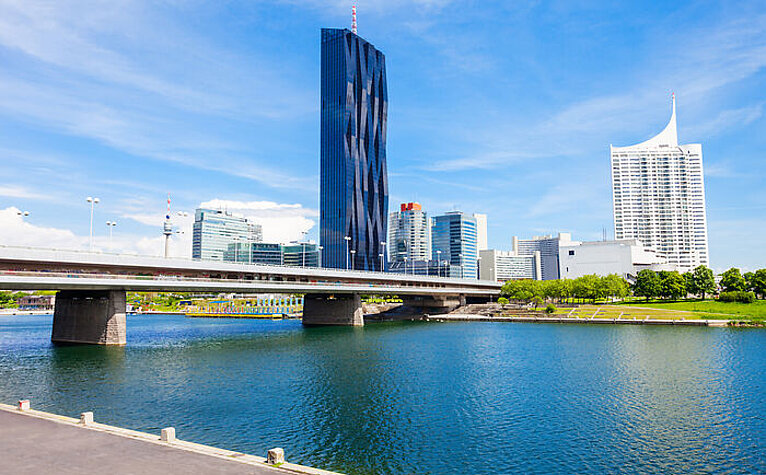 © saiko3p/Adobe Stock
© saiko3p/Adobe Stock
- Location advantages
- Innovation and digitalisation
- Research & development
- News
Clean Tech as the key to the Austrian circular economy
16. January 2025Austria is driving the development of a competitive and circular economy by relying on Clean Tech. Innovative technologies are being researched in the country and tested for integration in the circular economy.
Austria has positioned itself as a pioneer in the circular economy: There are numerous RTI initiatives and partnerships among companies, research institutions and policymakers striving to promote sustainability and resource efficiency. Clean technologies (Clean Tech) contribute to the implementation of this circular model and can significantly improve the efficiency of existing systems.
Potential of the circular economy
In a circular economy, the value of products, materials and resources is maintained for as long as possible as a means of minimising waste and their environmental impact. Technology optimises processes. The transition to circular business models opens up economic opportunities. This means lower costs for companies in the long term thanks to recycled raw materials and less waste. At the same time, expertise is created and the dependence on international supply chains is minimised. According to a study carried out by pwcstudy carried out by pwc (), Austrian firms generated revenue of approx. € 15.6 billion in 2021 in connection with the circular economy.
Digitalisation offers great opportunities thanks to technologies such as AI-supported material sorting. The plastics sorting plant TriPlast, the most modern in all of Europe, is located in Upper Austria. It is a joint venture between the Austrian companies ARA and Bernegger GmBH with the German corporate group Der Grüne Punkt. In the ReWaste F projectReWaste F project () funded by the Austrian Research Promotion Agency (FFG), research institutions such as the Montan University Leoben are collaborating with companies such as the Austrian subsidiary of the Siemens Group of Germany to build a prototype of a smart waste factory by March 2025. This is actually an industrial-scale waste treatment plant that autonomously adapts to new conditions.
Cross-sector collaboration, in which the waste from one company is transformed into a resource for another, is also fuelling developments. In addition, the combination of the circular economy with renewable energy sources unlocks the potential to create more sustainable industrial processes. Research and development into compostable or renewable materials is booming. For example, LenzingLenzing (), the global pioneer in textile fibres, manufactures them from wood using innovative technologies. In turn, this yields biodegradable cellulose fibres that are processed into vegetable nets, amongst other applications.
Austria as an attractive business location
"In Austria, there are clear government strategies and funding programmes which support innovative companies, such as the Austrian circular economy strategyAustrian circular economy strategy ()," says Gregor Gluttig, Member of the Board at the Circular Economy Forum Austria and Managing Director of the consulting firm inloop. For example, the Austrian Research Promotion Agency (FFG) issues an annual call for proposals on the circular economy and production technologies, focusing on application-oriented and cooperative research projects. It also promotes the exchange of knowledge, experience and networking in the country with activities such as the research dialogues organised by the Federal Environment Agency and the Climate LabClimate Lab ().
"Austria boasts a closely-knit network of research institutions, universities and startups that deal with topics such as resource efficiency and sustainable design," Gluttig explains. "The country has a long tradition in areas such as environmental technology, water and waste management. This expertise creates a solid foundation for the further development of the circular economy. And the population is highly sensitised to the need for sustainability, which, in turn, increases the demand for and acceptance of new solutions." Austria offers top educational and training programmes for potential employees in future-oriented fields such as the circular economy, sustainability and resource management, recycling technologies and hydrogen. The University of Applied Sciences Technikum is training generalists for the industry in its hydrogen technology degree programme,hydrogen technology degree programme, () to name one example.
More about Green Tech and Clean Tech in AustriaMore about Green Tech and Clean Tech in Austria ()